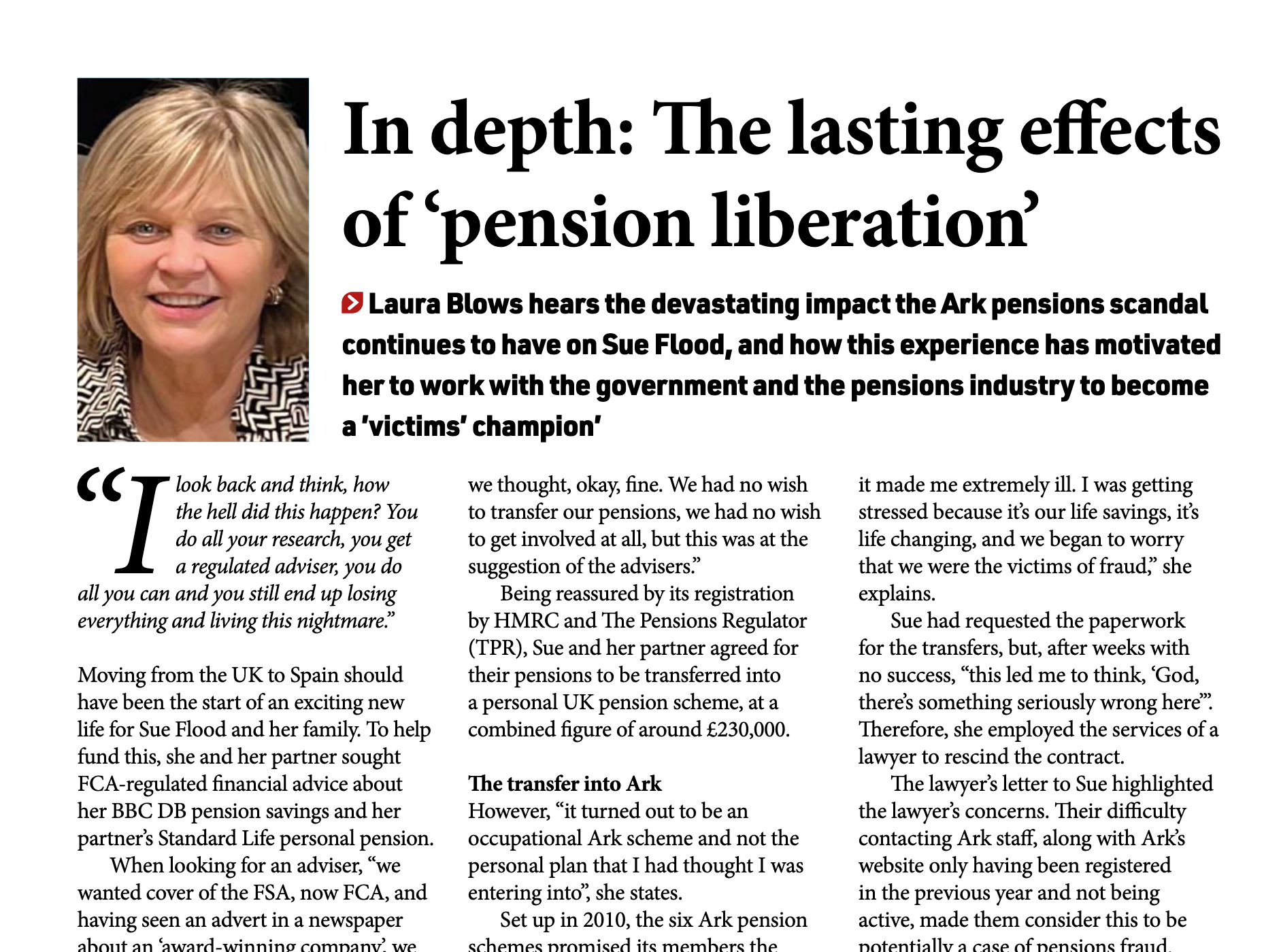Hosted by the Investment Fraud Committee at the Palace of Westminster | 12 May 2025
On 12 May 2025, the Investment Fraud Committee hosted a pivotal Parliamentary Summit in the iconic committee rooms of the Palace of Westminster. The event brought together victims of financial fraud, experts, MPs, and advocates to shine a light on the injustice faced by those defrauded being pursued by HMRC for unjust tax and to push for long-overdue reforms. The summit was expertly chaired by Carly Barnes-Short and Andy Agathangelou, whose leadership ensured the event was both powerful and purposeful.
Thanks to Carly, Sue Flood, and their team for their tireless work in making the event a reality—and to every individual who attended, shared their stories, and bravely gave testimony.
A Day of Powerful Testimonies
The summit showcased the voices of individuals who have suffered under a broken system—ordinary people from all walks of life, from footballers and nurses to families and small business owners. United by a common cause, their voices rang out in unison, demanding HMRC reform. These were not reckless speculators—they were hardworking individuals who trusted regulated advice and government-approved investments, only to be betrayed.
Fraud in Sport
Brian Deane and Danny Murphy, both former England footballers, shared their devastating experiences with government-backed film investment schemes and the widespread issue of financial abuse in football. They explained that for professional footballers, the focus must always be on their game—their livelihood depends on it. Engaging regulated financial advisors to manage their earnings and plan for their future should have been the right course of action.
However, this trust was often exploited. Deane and Murphy pointed out that the combination of a singular focus on their careers, a limited education in financial matters, and predominantly working-class backgrounds left many players ill-equipped to notice when they were being taken advantage of. Financial advisors, who should have been safeguarding their futures, often preyed on their lack of financial knowledge.
The consequences were devastating. What should have been sensible, secure investments to ensure their futures became the very thing that jeopardised their financial wellbeing. This is not an isolated problem—it is an endemic crisis within professional football, one that remains largely unaddressed by the powers that be.
“Players need to focus on their game to make it to the top. They should be able to trust the advisors they hire to protect their earnings, but instead, many have found themselves victims of financial fraud,” Deane and Murphy stated. “It’s a silent epidemic, and it’s ruining lives—yet there’s little appetite to take real action to help those in crisis.”
Fraud in Pensions
Sue Flood, a pension scam victim, took the stage at the summit to share her deeply personal and painful experience with pension fraud. She spoke movingly about the emotional and financial toll of being targeted by HMRC despite being a victim herself. Sue’s story resonated with many in the room as she outlined the 15-year struggle that pension scam victims have endured in their desperate pursuit of fairer treatment from HMRC.
She explained how, instead of receiving compassion and understanding, victims have felt persecuted by HMRC for money they never received. Over the years, interest and penalties have been constantly applied to their stolen funds, further adding to their suffering. Sue pointed out that HMRC had been slow to calculate the true impact of these scams, dragging out the process and prolonging the misery for those already struggling.
“We’ve been caught in a system that refuses to acknowledge the truth of what has happened to us. Instead, HMRC applies penalties and interest while we fight for fairness,” Sue Flood said. “It’s like the Post Office scandal all over again—human lives are being ruined, and yet successive governments continue to turn a blind eye, taking HMRC’s word and disregarding the evidence.”
Sue’s testimony drew strong comparisons between the Post Office scandal—where innocent people were unjustly convicted—and the plight of pension fraud victims who have been caught in a similar cycle of injustice, with no accountability for the systems that have caused them harm.
In response to the urgency of the situation, Sue Flood announced that she will be leading the newly formed Pension Fraud Committee. This committee will take a deeper dive into the issues impacting pension fraud victims, ensuring that their voices are heard and that effective solutions are put forward to help them secure justice.
Pension Fraud: A 15-Year Struggle for Justice
Sue Flood, a pension scam victim and lead victim advocate, gave a heart-wrenching testimony about the devastating effects of being scammed in a pension scheme and then subjected to relentless tax demands from HMRC. Sue shared her own 15-year battle to seek justice and fair treatment, and the emotional devastation that so many victims of pension and investment fraud continue to face. Despite being a victim, Sue, like many others, was pursued by HMRC for tax liabilities on stolen funds, forcing her to live in a constant state of uncertainty and distress.
Sue highlighted the compounding trauma faced by pension fraud victims. In many cases, interest and penalties have accumulated over a decade, which only serves to deepen the sense of betrayal they feel, as well as financial ruin. This double victimisation—being defrauded, and then being relentlessly pursued by HMRC—has taken a severe toll on many victims’ mental health.
“The system has been so slow and unforgiving. Fifteen years of torment, with no recognition of the pain and suffering we’ve endured. We’ve been punished for being defrauded—punished by the system and punished by HMRC,” Sue said. “It’s like the Post Office scandal all over again. The government continues to ignore the evidence, and victims are left to fight for their lives unsupported.”
Sue’s testimony struck a powerful chord, as she reflected on the lack of compassion and understanding from HMRC, which continues to disregard the human impact of their actions. Sue was not just fighting for herself, but for hundreds of others who have been through similar emotional and financial trauma.
“These people were not trying to dodge tax—many victims have already lost everything,” Sue remarked. “The system is failing us at every turn.”
In a call to action, Sue announced that she would be leading the newly formed Pension Fraud Committee, dedicated to tackling the systemic issues that have left pension fraud victims without justice.
The Human Cost: A Silent Crisis of Despair
The summit not only highlighted the financial devastation caused by fraud but also the profound emotional and psychological toll that HMRC’s actions are having on victims. Kim Goldsmith, a nurse, fraud victim, and victim advocate, took the stage to share the devastating human cost of being pursued by HMRC after being defrauded.
Kim explained that, as a nurse, she is acutely aware of the psychological effects of prolonged trauma. She described the unrelenting stress experienced by victims as HMRC continues to pursue them for tax liabilities. For many victims, this relentless pursuit has not only exacerbated the financial ruin they’ve already suffered but has also devastated their mental health.
“We’re not just losing our money—we’re losing our lives,” Kim said. “The emotional toll of being pursued by HMRC after being defrauded is devastating. The system keeps punishing us, and people are being driven to the brink. It’s not just financial loss—it’s the loss of hope, the loss of mental well-being, and for some, the loss of life.”
Kim raised a critical point: HMRC’s desire to bring these cases now to a swift conclusion—while seemingly practical from a bureaucratic standpoint—will have catastrophic consequences for victims. Many of these individuals are being pushed into further crisis, their psychological and emotional well-being undermined by the harsh approach taken by HMRC.
In an attempt to close cases now, HMRC risks forcing victims into agreements or settlements that could leave them financially devastated for life. Kim warned that this rush to conclusion will cut short the chances for victims to receive fair treatment and will likely perpetuate the trauma they have already endured. It’s a system that is too eager to move on, without giving victims the dignity and justice they deserve and risking pushing victims into bankruptcy and suicide.
“If HMRC gets its way and rushes to close these cases, in such unfair terms, it will have catastrophic consequences,” Kim said. “For many victims, this is not just about finances—it’s about survival. HMRC’s push to conclusion is making an already impossible situation even worse. It’s as if they’re trying to sweep this under the rug, without any regard for the people whose lives are being torn apart.”
Kim’s testimony painted a picture of how HMRC’s approach—focused on strict liability collection of taxes at the expense of genuine, compassionate investigation—will worsen the crisis for many victims. It disregards the emotional cost, and fails to acknowledge the suffering and financial reality that victims continue to face every day.
She called for immediate reform of how HMRC handles fraud victims, urging them to pause and reassess their tactics. The pressure to settle quickly or accept unfavourable resolutions will worsen the psychological strain on victims, pushing some to the brink of despair.
“HMRC needs to start focusing on the human cost,” Kim said. “For many victims, the rush to conclusion in these terms could push them into even deeper financial ruin and mental health crisis. The consequences of this will be catastrophic—people’s lives are at stake.”
Kim also shared that she had written directly to the Prime Minister, expressing her severe concerns about the growing suicide risk among fraud victims and the urgent need for government intervention. In her letter, Kim outlined the devastating mental health impacts caused by HMRC’s actions and the need for compassionate reform to support fraud victims through their recovery. Despite the gravity of her concerns, she has not received a response.
“I wrote to the Prime Minister because lives are at stake, yet I haven’t had a reply,” Kim said. “The government is failing to respond to a crisis of its own making. These victims are not just numbers—they are human beings whose lives are being ruined. The government must act before it’s too late.”
Her words were a stark call to action, demanding that the government and HMRC take immediate steps to protect fraud victims. She urged HMRC to reassess its policies, halt the rush to close cases, and introduce trauma-informed practices that would prioritise victims’ mental and emotional well-being.
Kim concluded with a powerful plea:
“We cannot afford to wait any longer. Every day that goes by without government intervention, more victims are pushed to the brink. The time for action is now, before more lives are ruined. Lives are literally on line. These are human beings, with parents, children, and loved ones. The ripple effect of this crisis is enormous, tearing families apart and destroying futures. HMRC have lost their humanity in this process, and it’s time this government put victim welfare first.”
The System on Trial: Institutional Failures Exposed
In addition to victim testimonies, the summit featured expert speakers who helped expose the institutional failures perpetuating the plight of fraud victims:
- Simon Myerson KC, a leading barrister, discussed the legal complexities and failures within the system that continue to allow victims to be unjustly pursued for tax on stolen funds.
- Anthony Stansfeld, former Police and Crime Commissioner, condemned the lack of serious action in tackling fraud and the absence of accountability for those responsible.
- Margaret Snowdon OBE spoke passionately about the impact of pension fraud, highlighting the urgent need for reform.
- Professor Nigel Harper, former senior HMRC inspector, provided a critical analysis of HMRC’s handling of fraud cases, revealing a disturbing lack of empathy and understanding within the department.
- MPs Caroline Nokes (Deputy Speaker), Alex Sobel, and Sarah Bool voiced their unwavering support for immediate legislative and policy changes, stressing the need for the government to act swiftly to protect victims.
What the UK Can Learn from the US: A Call for Change
Jeremy Cornford, a financial advisor, offered a stark contrast between how fraud victims are treated in the UK and the US. In the United States, victims are exempted from tax on fraudulent investments and receive tax relief, while authorities aggressively pursue the fraudsters. By contrast, in the UK, victims face relentless pursuit by HMRC for taxes on stolen funds, with little action taken against the perpetrators.
“In the US, the system is built to protect victims and punish fraudsters. Here in the UK, the opposite is true,” Cornford explained. “We must learn from this and create a fairer, more compassionate system.”
Lighting the Way Forward: A Call to Action
The summit concluded with a powerful call to action. Andy Agathangelou, founder of the Transparency Task Force, urged everyone to unite around three key principles for reform:
- Recognise the injustice
- Refuse to accept inaction
- Relentlessly pursue systemic change
Together with Sue Flood and Carly Barnes-Short, who are launching a new charity to offer legal, financial, and emotional support for victims, the committee’s call for reform has gained new momentum.
Acknowledgements and Thanks
The Investment Fraud Committee extends our heartfelt thanks to those who made this summit a success:
- Carly Barnes-Short and Andy Agathangelou, for expertly chairing and leading the event with dedication and integrity.
- Sue Flood, Carly Barnes-Short, and their hardworking team for their meticulous organisation and coordination of the summit.
- Simon Myerson KC, Anthony Stansfeld, Margaret Snowdon OBE, Professor Nigel Harper, Jeremy Cornford, and all our expert speakers for providing invaluable insights.
- To every victim who shared their testimony, your courage and resilience inspire us all.
The Path Forward: Urgent Reform Needed
The summit has been a pivotal moment in the ongoing fight for justice for fraud victims. The Investment Fraud Committee is now calling on the new government to act immediately and implement the following recommendations:
- A moratorium on tax liabilities for fraud victims
- An independent inquiry into HMRC’s handling of fraud cases
- Specialist fraud training for HMRC staff and the creation of a victim support unit
- New legislation to ensure victims are not taxed on stolen funds
- Independent victim advocacy services to support fraud victims
As Lord Mann asserted at the summit, the time for inaction is over—justice must be served, and victims must come first.
A Turning Point, Not an Endpoint
The success of this summit is just the beginning. The Investment Fraud Committee will continue its efforts to bring about lasting reforms and ensure that victims are no longer punished for the crimes committed against them.
Due to parliamentary rules, we were unable to record the speeches during the summit. However, we will be organising recorded virtual calls to capture the powerful testimonies provided, ensuring these voices are heard by all who need to listen.


